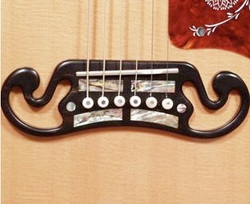The biggest part of Frank Ford' article is this sentence:
"BUT, it is very important to realize that oils and polishes can penetrate any little breaks in the finish, and may make quite a mess over time." (diret quote).
As for his points regarding the use of mineral oil on fingerboards, I respectfully, but very firmly disagree. I think most hand builders and luthiers would as well. I don't see how would would be accepting to mineral oil, as it has never experienced that type of oil while it was a tree. Like I said, trees of any type, don't have mineral oils/spirits running through them when they were alive. Minera; po;s are great for cleaning metal parts, cleaning engines, etc. They are never used as wood finishes, for a at least fine quality furniture/
Like I said before, you can coat your fretboard in axle grease if you want; its your guitar, and you play it. Just don't be under any impression that you are doing anything beneficial for the fretboard.
"BUT, it is very important to realize that oils and polishes can penetrate any little breaks in the finish, and may make quite a mess over time." (diret quote).
As for his points regarding the use of mineral oil on fingerboards, I respectfully, but very firmly disagree. I think most hand builders and luthiers would as well. I don't see how would would be accepting to mineral oil, as it has never experienced that type of oil while it was a tree. Like I said, trees of any type, don't have mineral oils/spirits running through them when they were alive. Minera; po;s are great for cleaning metal parts, cleaning engines, etc. They are never used as wood finishes, for a at least fine quality furniture/
Like I said before, you can coat your fretboard in axle grease if you want; its your guitar, and you play it. Just don't be under any impression that you are doing anything beneficial for the fretboard.

